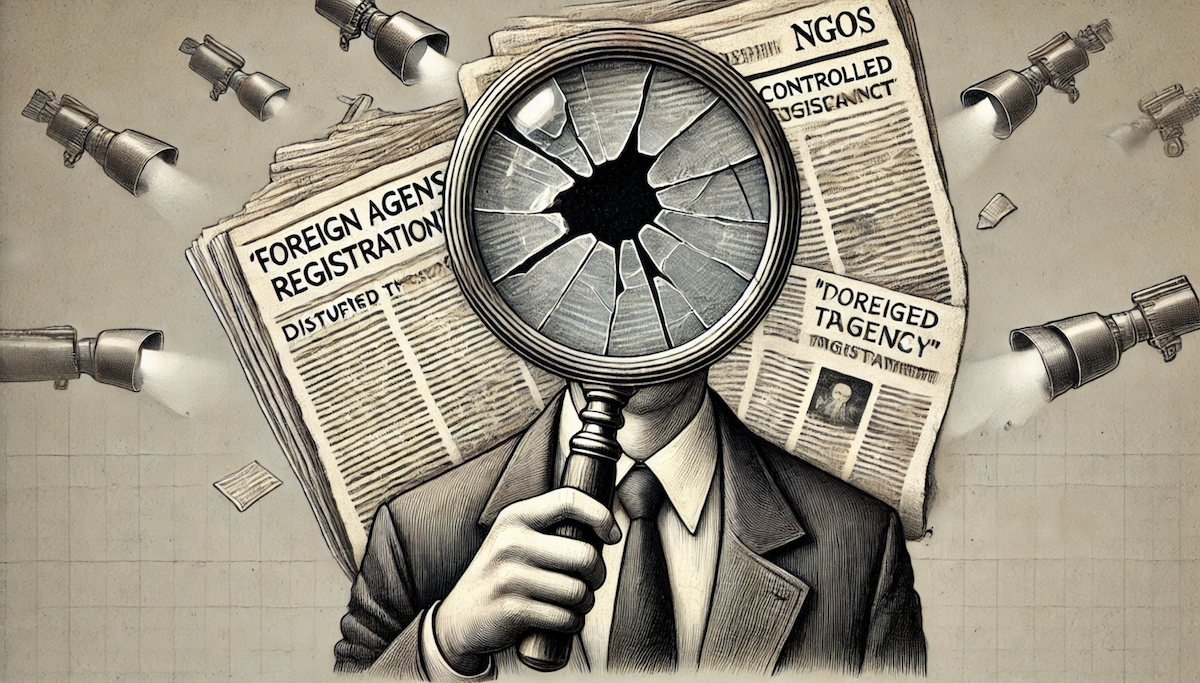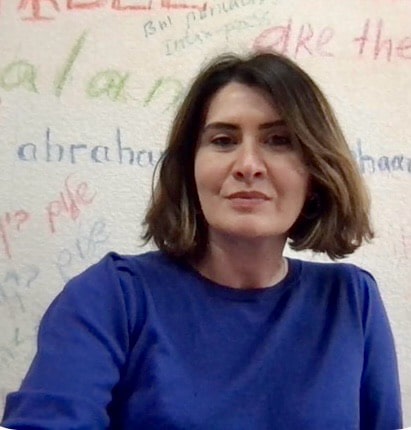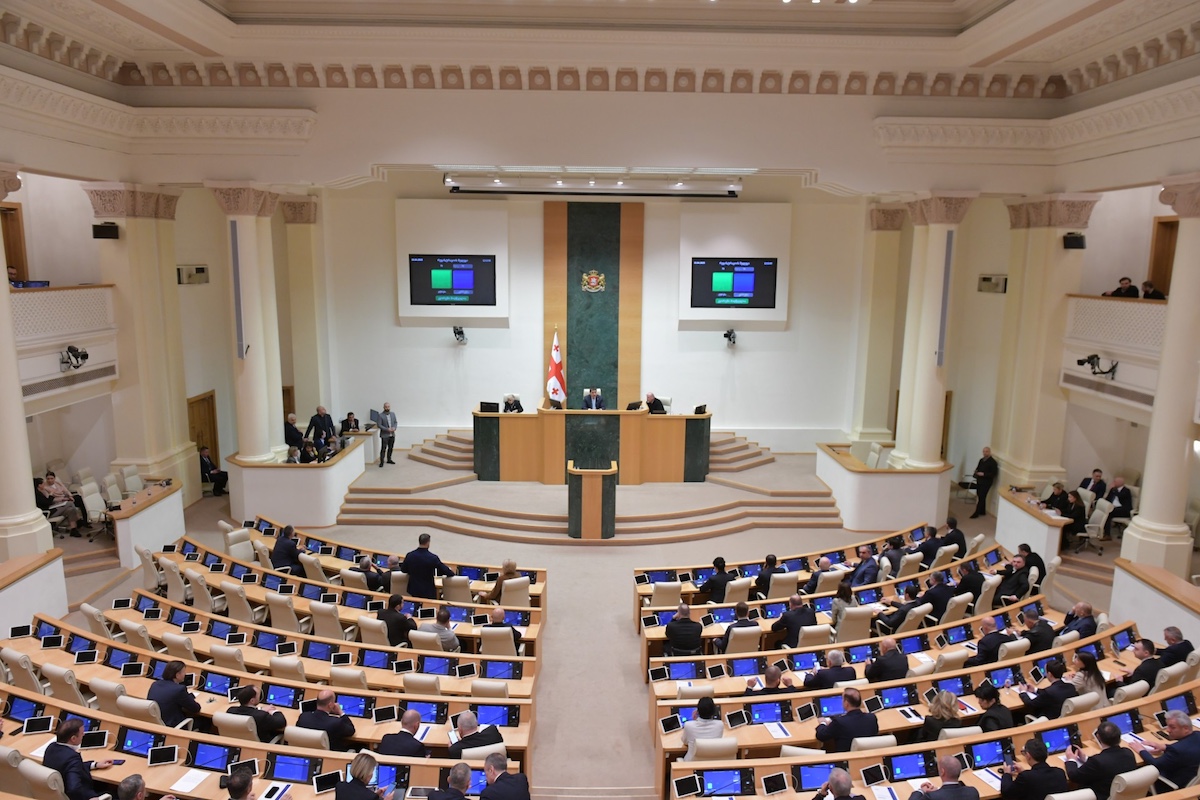In six months, Georgia passed five laws restricting media. Here’s a breakdown
Laws restricting the media in Georgia
In the spring session of 2025 alone, the Georgian Dream-dominated parliament rushed through five legislative amendments that significantly restrict media activity and free speech in Georgia.
These laws effectively ban foreign-funded media, tighten state control over outlets, and allow authorities to punish journalists for criticizing the government.
- “Repeal repressive laws, protect rights” – European Commission pressures Georgian Dream, visa-free regime at risk
- Opinion: “FARA law is Georgian Dream’s tool to silence speech and association”
There are already first cases of these laws being applied in practice. For example, one Georgian media outlet was unable to receive grant funding it had won through a competition, journalists were summoned to court and fined for critical social media posts, and more.
In this article, we explain which new laws and legislative amendments Georgian Dream has passed and how they restrict the work of independent media.
Foreign Agents Registration Act (FARA)
The “Foreign Agents Registration Act” (FARA), which Georgian Dream calls a Georgian version of the US FARA and claims is a word-for-word translation, was introduced on February 19, 2025, and passed on April 1.
However, unlike its American counterpart, which targets lobbying organizations, the Georgian FARA specifically targets media outlets and civil society organizations.
The Georgian FARA requires media outlets receiving foreign funding to register in a dedicated registry (already established by the Ministry of Justice) as “agents of a foreign power (principal).”
If an organization fails to register, it faces a fine of 10,000 GEL [$3,690]. After that, it will be fined 20,000 GEL [about $7,380] monthly for failing to submit a financial declaration.
Additionally, any individual or employee connected to such an organization who is asked by law enforcement to provide information under special supervision but refuses will be fined 5,000 GEL [about $1,845].
🟥 The law also includes criminal liability: directors or board members face up to 5 years in prison if the organization is not registered.
It’s important to understand that independent media in Georgia cannot survive through self-funding—it’s simply not possible. They all rely on international grants, meaning that with the adoption of Georgian FARA, such outlets will likely cease to exist.
FARA came into force 60 days after its adoption, on June 1.
Previously, Georgian Dream passed a similar law called the “Transparency of Foreign Influence Act,” but it failed to work—no independent media outlet or civil society organization registered as a “foreign agent.”
Amendments to the Georgian Broadcasting Law
On April 1, parliament unanimously adopted another legislative package – amendments to the Law on Broadcasting – that bans broadcasters from receiving foreign funding.
The ban covers not only grants but also services purchased from broadcasters by a “foreign power,” as well as direct or indirect funding or co-funding of program production and broadcasting. Accepting foreign funding in exchange for airing social ads is also prohibited.
Due to an underdeveloped advertising market in Georgia, government pressure, and other factors, many TV and radio channels have long struggled with a lack of advertising revenue. Statistics show ad shares are shrinking on critical channels while growing on state-run broadcasters. These changes, therefore, pose a major threat to independent broadcasters.
🟥 The amendments also strengthen censorship risks by granting the National Communications Commission the authority to interfere in media content.
For example, the Commission can now assess issues such as factual accuracy, impartiality, fairness, and the right of reply in media reports.
Exactly two months after these amendments took effect, Georgian Dream filed a complaint with the Communications Commission against three critical TV channels – Pirveli, Formula, and Mtavari Arkhi — for using phrases like “prisoners of the regime,” “illegal parliament,” and “so-called parliament” in their reports, programs, and social media posts.
Georgian Dream was also displeased that the country’s informal ruler, Bidzina Ivanishvili, was referred to as an “oligarch.”
Broadcasters viewed these complaints as an attempt at paralyzing censorship.
The Communications Commission had the authority to fine the broadcasters based on these complaints. Everyone expected it would do so. However, while the Commission ruled that the channels had indeed violated the law, it decided not to impose fines.
Amendments to the Georgian Grants Law
On April 16, Georgian Dream adopted another legislative amendment, this time to the Law on Grants.
🟥 Under these changes, no foreign grant can be issued in Georgia without government approval.
This means that if any foreign fund or organization – for example, the European Union or the United Nations – wants to support a Georgian NGO, it must first obtain official permission from the Georgian Dream government.
To issue a grant, the donor must submit a draft agreement to the Anti-Corruption Bureau, which is responsible for implementing these amendments (the bureau’s director is appointed by the Prime Minister).
The draft must include all details: the grant amount, purpose, and duration.
The Anti-Corruption Bureau has the right to review the project for up to three months or longer before deciding whether to approve the grant.
🟥 If a donor dares to issue a grant without government approval, the recipient will be fined an amount twice the size of the grant.
There are already first victims of these amendments: on June 11, it became known that the online outlet Tabula would not be able to receive a £50,000 grant from the UK government intended to inform the public about the municipal elections scheduled for autumn 2025.
Reportedly, the UK government, following the law, sought permission from Georgian Dream’s government to issue the grant, but the Georgian side delayed its response so much that the UK canceled the project altogether.
Amendments to the Law on Freedom of Speech and Expression
On June 18, Georgian Dream introduced, and on June 26 fast-tracked, amendments to the Law on Freedom of Speech and Expression.
The changes mainly affect the section on defamation. The definition of defamation was altered: the component of “harm caused,” previously required for a statement to be recognized as defamatory, was removed.
Moreover, whereas the plaintiff previously had to prove they were defamed, now the defendant must prove that what they said is true.
Additionally, if the court deems that publishing a retraction is insufficient, the defendant must also compensate for moral or material damages.
🟥 The most dangerous amendment is the requirement to disclose sources — protections for journalistic sources have been abolished. From now on, refusing to disclose a source or professional secrecy alone can be grounds for a ruling against the defendant.
These amendments have already been enforced: six journalists were summoned to Tbilisi City Court for critical social media posts about Georgian Dream politicians, accused of “insults” for using words like “slave” and “scoundrel.”
The court found all six guilty and fined them 3,000–4,000 GEL (about $1,100–$1,400).
Amendments to the Organic Law on General Courts
Also introduced on June 18 and adopted on June 26, amendments to the Organic Law on General Courts fundamentally change the rules for covering court proceedings.
🟥 These changes make it nearly impossible to cover trials, as photo and video recording is now banned not only in courtrooms during hearings but also in hallways and even outside court buildings.
Back in 2013, when Georgian Dream first came to power, it repealed a previous government ban on trial coverage. The 2013 amendments allowed public broadcasters to film and broadcast open court sessions without restrictions and required them to share footage with other outlets. If the public broadcaster did not cover a trial, other TV channels could do so with prior permission.
The current amendments reintroduce the ban at a time when Georgia has over 50 political prisoners, all opposition leaders are jailed, and public interest in court cases is high. Past trial coverage exposed the absurdity of charges and police falsehoods.
The amendment took effect on June 30. From now on, media outlets must request permission from the High Council of Justice to film trials. Despite numerous hearings since, the Council has not granted a single filming permit.
Cover photo: ©️Media April
News from Georgia





















